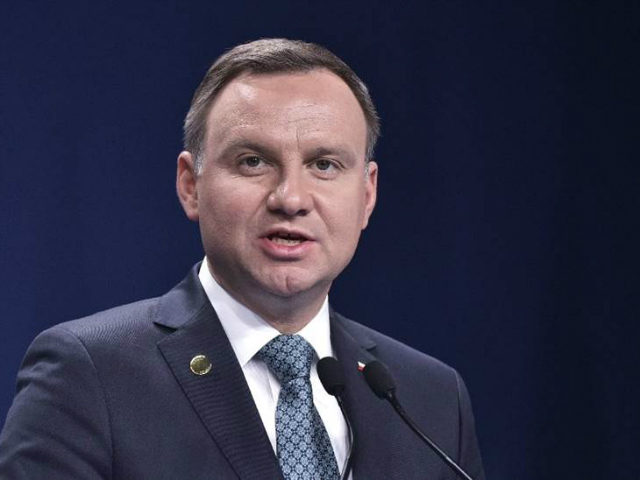(AFP) – Polish President Andrzej Duda has said he fears EU-British ties will suffer after Brexit if “obstinate politicians” from the bloc continue to use hardline rhetoric against London.
His comments came after Eurogroup chief Jeroen Dijsselbloem last week described the UK’s approach to Brexit as “unrealistic”, while Italian Economic Development Minister Carlo Calenda said its aim of retaining common market access while restricting immigration was “wishful thinking”.
“I propose a glass of cold water to cool emotions, so that in the end it doesn’t turn out that we all lose — both the EU and the UK,” Duda told Bloomberg in an interview published Monday.
“It would be a great loss for the EU if it got cut off from the UK economy and the ties of good, open cooperation between the two were severed,” he said in the interview conducted last week.
Duda added that there was the danger that a “group of obstinate politicians” will “attempt to punish the British people, or the UK, for daring to leave the EU.”
Britain voted to leave the European Union in a June referendum and British Prime Minister Theresa May has said she will trigger Article 50 — the formal procedure for departure — by the end of March at the latest.
One of the key factors behind the Brexit vote was the influx of hundreds of thousands of citizens from other EU states into Britain every year to find work.
May has said she wants to cut these numbers while retaining “maximum” access to the EU single market for British firms, but EU leaders have ruled this out, saying Britain would have to accept free movement of people.
Poland has a huge stake in the issue because around 800,000 Poles are thought to be living in Britain, one of its biggest minority groups.
Poland has also joined Britain in leading the fight against centralised authority in the EU.
Populists in both countries, and elsewhere in eastern Europe, have attacked the powerful executive European Commission as a federalist assault on sovereignty.
In contrast, EU supporters attribute Europe’s flaws to the fact that stronger centralised institutions and democracy have been thwarted by national interests.

COMMENTS
Please let us know if you're having issues with commenting.